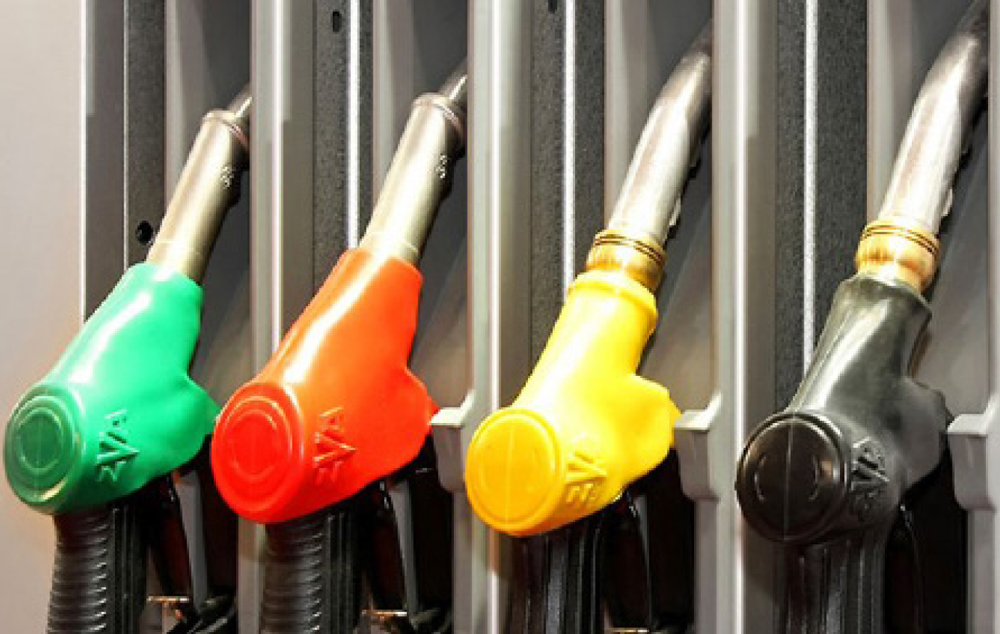Why is fuel so expensive?
The price of petrol in the UK is among the most expensive in the world.
Crude oil is bought by retailers on the global market, where prices might fluctuate with supply and demand. Exchange rates are likely to have an effect on prices too.
So what makes up the rest? The answer (mostly) is tax. UK fuel duty, at 53p per litre, is one of the highest in the world. According to the BBC, this accounts for 35% of the total cost of fuel. On top of this is VAT, which currently sits at 17% – but it’s charged at 20%.
What makes up the cost of fuel?
Fuel duty 35%
Cost of petrol to the supplier 33%
VAT 17% (VAT is charged at 20% but makes up 17% of the cost of fuel)
Retailer’s profit 8%
Cost of biofuel content (for example E10) 7%
Supply and delivery 1%
Source: BBC
When is fuel consumption at its highest?
When you’re accelerating your fuel consumption is at its highest. It’s likely you’ll have to accelerate on multiple parts of your journey, but opting for gentle acceleration is usually the best option.
When you’re travelling faster your vehicle uses more fuel. This is because your engine is working harder and needs more fuel to do this.
On some motorways in England and Wales, the Government cut the speed limit to reduce emissions. Usually, the less emissions you’re creating the less fuel you’re using. So travelling at 50 mph instead of 70 mph could improve your fuel consumption.
Also if you’re travelling at 80 mph you’re breaking the law and could end up with a speeding fine. You’re also using 25% more fuel than you would by staying within the speed limit.
What will reduce my fuel consumption?
With the government unlikely to reduce fuel duty any time soon, it’s worth thinking about how you can use less fuel.
One thing to do is look into fuel efficient cars, as those with the highest MPG rating should be the most fuel efficient.
Or you might think about switching to an electric car.
In the meantime, there are lots of other easier ways to reduce your fuel costs.
Not only could these tips save you money, but making the most of your fuel reduces your car’s carbon emissions.
How can you avoid wasting fuel?
Here we look at some of the best ways to increase your fuel efficiency and to save on petrol.
1. Maintain your vehicle
Well-maintained vehicles generally use fuel more efficiently, so it’s worth keeping your vehicle in good condition.
Maintenance includes booking it for regular services and getting issues fixed quickly.
2. Remove excess weight
Your car uses more fuel if it’s heavy. One way to reduce its weight is to take anything out of the car that you’re not using.
Removing your roof rack when you’re not using it and getting rid of any rubbish in the car could reduce some weight.
Footballs, deckchairs, toys and so on might be handy from time to time, but the weight could increase your fuel consumption.
Give your car boot a clear out and try not to travel with items in the car you don’t need.
3. Inflate tyres to the correct pressure
If you don’t know whether you have the correct tyre pressure your fuel consumption should tip you off.
The surface area that’s in contact with the road increases when a tyre is under-inflated. The more surface area in contact with the road, the more drag on the wheel.
4. Only top up your tank with as much fuel as you need
Only topping up with what you need and avoiding having a full tank means the fuel you do have goes slightly further.
To make it easier to judge the correct amount of fuel, keep a notebook in the glove box, or keep a record on your phone.
When you fill up, write down how much fuel you put in to get from A to B. Note this in litres, not in pounds, as fuel prices are always changing.
Some fuel tanks can take up to 109 litres, so that’s a significant amount of extra weight to carry around. You wouldn’t leave 109 litres worth of bottled water in your boot, would you?










Leave a Reply